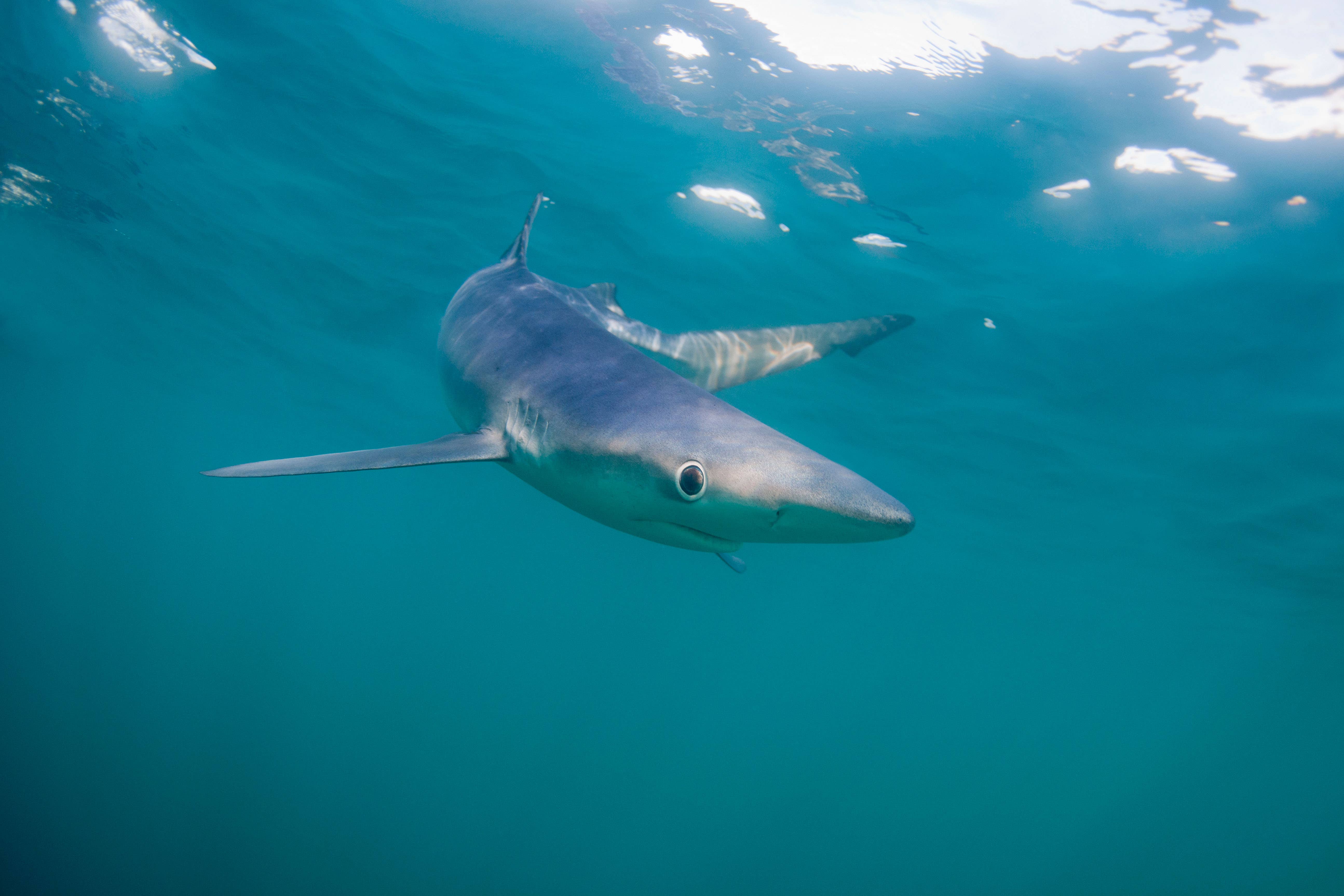Electric pulses can reduce number of sharks caught on fishing lines, study finds
The device, called SharkGuard, was tested on French boats fishing for tuna.

A device that emits small electric pulses can drastically cut the number of sharks and stingrays caught accidentally on fishing lines, according to research.
SharkGuard, which was developed by conservation engineers Fishtek Marine and tested by researchers at the University of Exeter, attaches to longline fishing rigs to deter sharks and rays.
In a study, carried out on French boats fishing for tuna, lines fitted with the device reduced accidental catching of blue sharks by 91% and stingrays by 71%.
Catch of the target species, bluefin tuna, also appeared to decline but researchers say further testing is needed to fully understand this.
Our study suggests SharkGuard is remarkably effective at keeping blue sharks and pelagic stingrays off fishing hooks
Dr Phil Doherty, of the Centre for Ecology and Conservation at the University of Exeter’s Penryn Campus in Cornwall, said tests showed the device was “remarkably effective”.
“Many shark and ray populations are declining due to overfishing – particularly oceanic species such as blue sharks and pelagic stingrays that are commonly caught on longlines globally,” Dr Doherty said.
“There is an urgent need to reduce bycatch, which not only kills millions of sharks and rays each year but also costs fishers time and money.
“Our study suggests SharkGuard is remarkably effective at keeping blue sharks and pelagic stingrays off fishing hooks.”
Using the device resulted in a 42% reduction in bluefin tuna being caught.
Dr Doherty said the total number caught in the test period – on lines with and without SharkGuard – was low and so further trials are needed.
Engineers are now modifying the device to make it smaller and self-charging after every haul, he added.
SharkGuard, which is powered by a small battery, works by targeting the area around a shark’s nose and mouth which is packed with electrical sensors called the ampullae of Lorenzini.
These sensory organs are overstimulated by the electric field generated by SharkGuard, which makes the sharks swim away from the danger of the baited fishing hooks.
Against the relentless backdrop of stories of dramatic population declines occurring across all of our marine species, it is important to remember that there are people working hard to find solutions
Pete Kibel, co-founder and director of Fishtek Marine, said “When SharkGuard is used, sharks do not take the bait and do not get caught on the hooks, and that gives us a huge sense of hope.
“Against the relentless backdrop of stories of dramatic population declines occurring across all of our marine species, it is important to remember that there are people working hard to find solutions.
“SharkGuard is an example of where, given the appropriate backing, it is possible to roll the solution out on a sufficient scale to reverse the current decline in global shark populations.”
Professor Brendan Godley, who leads the Exeter Marine research group, said the device had “the potential to be a global game-changer for the sustainability of longline fishing”.
The study, published in the journal Current Biology, is titled Efficacy of a novel shark bycatch mitigation device in a tuna longline fishery.